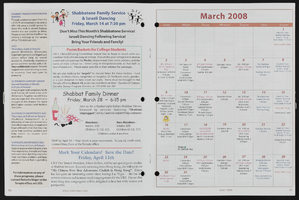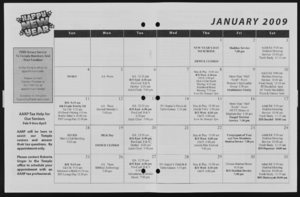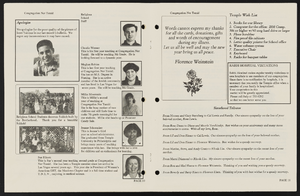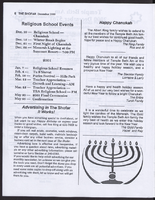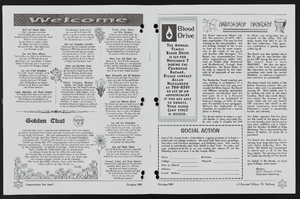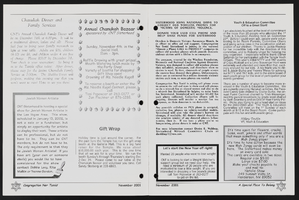Search the Special Collections and Archives Portal
Search Results
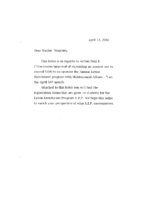
Meeting minutes for Consolidated Student Senate, University of Nevada, Las Vegas, April 16, 2001
Date
2001-04-16
Archival Collection
Description
Includes meeting minutes and agenda, along with additional information about the revised Senate status and Annual Latino Enrichment program.
Text
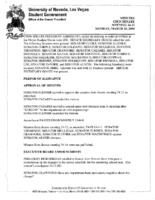
Meeting minutes for Consolidated Student Senate, University of Nevada, Las Vegas, March 29, 2004
Date
2004-03-29
Archival Collection
Description
Includes meeting minutes and agenda.
Text
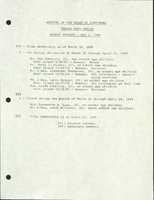
Minutes from Temple Beth Sholom Board of Directors meetings, June 1988 - May 1989 (1 of 2)
Date
1988 to 1989
Archival Collection
Description
Meeting minutes include reports from committees of the board, correspondence, and balance sheets.
Text
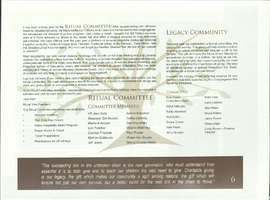
Annual report from Congregation Ner Tamid, 2013-2014
Date
2013 to 2014
Archival Collection
Description
Annual report from Congregation Ner Tamid, 2013-2014
Text
Pagination
Refine my results
Content Type
Creator or Contributor
Subject
Archival Collection
Digital Project
Resource Type
Year
Material Type
Place
Language
Records Classification

